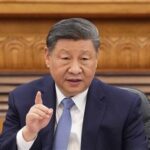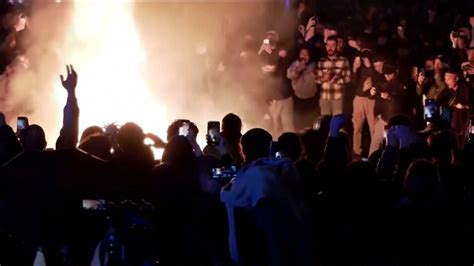
Prince Harry reportedly contemplated stepping back from royal duties years before “Megxit,” with a new biography claiming he explored options for a different role as early as 2017.
Prince Harry considered alternatives to his established royal role as early as 2017, years before his eventual departure with Meghan Markle, according to a new biography. Valentine Low’s “Courtiers: The Hidden Power Behind the Crown,” extracts published by The Times, reveal that Prince Harry was exploring a potential exit strategy well in advance of what became known as “Megxit” in early 2020. The book suggests that Harry felt increasingly constrained by the limitations of his position within the royal family and sought a way to redefine his public life.
The revelations detail a period of introspection for the Duke of Sussex, predating his marriage to Meghan Markle in 2018. Low writes that Harry’s unhappiness with his prescribed role in the monarchy was a long-standing issue, fueling his desire for a more fulfilling and independent existence. The book suggests that Harry’s initial considerations were focused on finding a way to modernize his role and carve out a more meaningful path, perhaps one with a greater emphasis on his charitable endeavors and personal interests.
“He was already thinking of leaving the Firm,” Low writes, implying that the rigid structure of the royal institution, often referred to as “The Firm,” was a source of frustration for the prince. These early musings highlight a significant divergence between Harry’s personal aspirations and the traditional expectations placed upon him as a member of the royal family.
The book further elaborates on Prince Harry’s attempts to discuss potential alternative roles with palace staff, including exploring opportunities to work abroad or to take on a more focused portfolio of responsibilities. However, these initial explorations reportedly met with resistance, as the established protocols and hierarchical structure of the royal household made it difficult to accommodate such significant shifts in roles and responsibilities.
The details provided in “Courtiers” offer a new perspective on the timeline leading up to Harry and Meghan’s decision to step down as senior royals. While “Megxit” became the defining moment of their departure, these early considerations reveal a deeper, more prolonged period of dissatisfaction and exploration on Harry’s part. The emerging narrative suggests that the couple’s ultimate decision was not a sudden impulse but rather the culmination of years of reflection and failed attempts to reconcile personal aspirations with royal duties.
The book does not specify the exact nature of the alternative roles Prince Harry was considering, but it suggests that he was looking for a way to have a greater impact on the world while maintaining a degree of independence from the constraints of royal life. His efforts to explore these options indicate a proactive approach to shaping his future, even within the confines of his royal status.
The revelations in “Courtiers” add complexity to the existing narrative surrounding Harry and Meghan’s departure. They suggest that the issues driving the couple’s decision were not solely related to Meghan’s experience as a newcomer to the royal family but also stemmed from Harry’s long-standing desire for a different path. This broader perspective helps to contextualize the events leading up to “Megxit” and sheds light on the underlying tensions that contributed to the couple’s ultimate decision to step back from their royal roles.
This information also highlights the challenges faced by members of the royal family in navigating the demands of tradition and public service with their personal aspirations. The expectations placed upon them can often conflict with their individual desires, leading to internal struggles and difficult choices. Prince Harry’s experience underscores the complexities of reconciling personal fulfillment with the responsibilities of royal life.
The extracts from “Courtiers” offer a more nuanced understanding of the motivations behind Harry and Meghan’s decision to step down as senior royals. By revealing Harry’s early considerations of an alternative role, the book challenges the notion that “Megxit” was solely a reaction to Meghan’s experiences and instead presents it as the culmination of a longer process of reflection and exploration on Harry’s part. This new perspective adds depth to the ongoing discussion about the future of the monarchy and the challenges faced by its members in adapting to changing times.
The reported timeframe of 2017 is significant because it pre-dates not only his marriage to Meghan, but also the numerous press controversies that surrounded their relationship. This implies that his desire for change stemmed from a more fundamental issue regarding his role within the institution itself, rather than solely from external pressures related to his marriage.
The revelations in “Courtiers” raise questions about the monarchy’s ability to adapt to the evolving needs and desires of its members. As the royal family continues to navigate the challenges of the 21st century, it may need to consider more flexible approaches to accommodating individual aspirations and ensuring that its members feel fulfilled in their roles. The experiences of Prince Harry and Meghan Markle serve as a reminder of the importance of open communication and a willingness to adapt to changing circumstances.
Furthermore, the reports could shed light on the internal dynamics within the royal household and the extent to which Prince Harry’s concerns were addressed or dismissed. If his early explorations of alternative roles were met with resistance, it could indicate a broader issue of inflexibility within the institution and a reluctance to embrace change. This could also contribute to a better understanding of why Harry and Meghan ultimately felt that stepping back was their only viable option.
The book’s revelations will likely fuel further debate about the future of the monarchy and the role of its members. As the younger generation of royals takes on greater responsibilities, it will be crucial for the institution to address the challenges and complexities highlighted by Harry and Meghan’s experiences. The ability to adapt to changing times and accommodate individual aspirations will be essential for ensuring the long-term relevance and stability of the monarchy.
The implications of these revelations extend beyond the personal experiences of Prince Harry and Meghan Markle. They raise broader questions about the nature of royal duty, the balance between tradition and modernity, and the role of the monarchy in a rapidly changing world. These are issues that will continue to be debated and discussed as the royal family navigates the challenges of the 21st century.
The book, therefore, offers crucial context that allows the public to re-evaluate the circumstances surrounding “Megxit.” It moves the narrative beyond a simple tale of marital discord or alleged mistreatment to one of a man deeply entrenched within an ancient institution grappling with his place within it.
The timing of this revelation is also noteworthy. Coming after the release of Harry and Meghan’s Netflix documentary and Harry’s memoir “Spare,” it adds another layer of understanding to the couple’s narrative. While previous accounts have focused heavily on Meghan’s experience and the couple’s relationship with the media, this new information shines a light on Harry’s internal struggles and his long-held desire for change.
The narrative suggests that Harry’s unhappiness wasn’t solely based on his wife’s experiences; it was a deeply personal quest for meaning and purpose that predated their relationship. This changes the understanding of “Megxit” from a reactive measure to a proactive pursuit of a different life.
The revelation that Harry considered leaving the Firm before meeting Meghan also raises questions about the support system available to members of the royal family. Were his concerns adequately addressed? Was there a space for him to explore alternative roles within the institution without facing resistance? The answers to these questions could shed light on the internal dynamics of the royal household and the challenges faced by those who feel constrained by its traditions.
The book’s claims, if accurate, significantly alter the public perception of the events leading up to “Megxit.” They suggest that the decision to step back from royal duties was not solely a result of Meghan’s experiences within the Firm but rather a culmination of Harry’s long-standing desire for a different path. This nuanced understanding of the situation may lead to a more sympathetic view of the couple’s decision and a greater appreciation for the challenges they faced.
This added complexity to the “Megxit” saga highlights the need for a more empathetic and nuanced understanding of the pressures faced by members of the royal family. While their lives may seem glamorous and privileged, they also come with significant responsibilities and expectations that can be difficult to reconcile with personal aspirations.
Ultimately, the story underscores the inherent challenges of modernizing a centuries-old institution and the personal toll it can take on those who are born into it. The experiences of Prince Harry and Meghan Markle serve as a reminder that even within the most privileged of circumstances, the pursuit of personal fulfillment and happiness remains a universal human desire.
The release of “Courtiers” serves as a timely reminder that historical events are often complex and multifaceted, with underlying motivations and personal struggles that are not always immediately apparent. By shedding light on Prince Harry’s early considerations of an alternative role, the book provides a valuable contribution to our understanding of the events leading up to “Megxit” and the ongoing evolution of the British monarchy.
The insights within “Courtiers” are poised to reshape the narrative surrounding the Duke and Duchess of Sussex, presenting a more intricate depiction of their departure from royal duties and emphasizing Prince Harry’s longstanding desire for independence and self-determination.
The book’s revelations could potentially influence public opinion towards Harry and Meghan. By understanding the complexities of Harry’s personal journey and his longstanding desire for change, the public may be more willing to empathize with their decision to step back from royal duties and pursue a different life.
The details emerging from Valentine Low’s book also place increased scrutiny on the Royal Family’s ability to adapt and evolve. The future may require a more flexible approach to royal roles, taking into account the personal aspirations and talents of individual members, to prevent similar situations from arising.
The story of Prince Harry’s early considerations of leaving the Firm serves as a poignant example of the tension between tradition and personal freedom. It highlights the difficulties faced by individuals born into extraordinary circumstances who strive to reconcile their duties with their own desires for self-expression and fulfillment.
Frequently Asked Questions (FAQ)
1. What is the main claim of the news article?
The main claim is that Prince Harry considered stepping back from his royal duties as early as 2017, years before he and Meghan Markle ultimately decided to step down in 2020, a period known as “Megxit.” This suggests that his desire for a different role within the monarchy predated his marriage to Meghan and was not solely a reaction to her experiences.
2. Where did this information come from?
The information originates from extracts of a new biography titled “Courtiers: The Hidden Power Behind the Crown” by Valentine Low, published by The Times.
3. What does the book “Courtiers” reveal about Prince Harry’s feelings towards his royal role?
The book suggests that Prince Harry felt increasingly constrained by the limitations of his position within the royal family and sought a way to redefine his public life. He was reportedly unhappy with his prescribed role and desired a more fulfilling and independent existence.
4. Did Prince Harry take any action to explore alternative roles?
Yes, according to the book, Prince Harry reportedly discussed potential alternative roles with palace staff, exploring opportunities to work abroad or take on a more focused portfolio of responsibilities. However, these initial explorations reportedly met with resistance.
5. How does this new information change the understanding of “Megxit”?
This information adds complexity to the existing narrative surrounding Harry and Meghan’s departure. It suggests that the issues driving the couple’s decision were not solely related to Meghan’s experience as a newcomer to the royal family but also stemmed from Harry’s long-standing desire for a different path. It frames “Megxit” as the culmination of a longer process of reflection and exploration on Harry’s part.
In-depth Analysis, Background Information, and Expanded Context:
The narrative surrounding Prince Harry and Meghan Markle’s departure from their roles as senior members of the British royal family, often referred to as “Megxit,” has been the subject of intense public scrutiny and media coverage since its occurrence in early 2020. While various factors have been attributed to their decision, including alleged mistreatment by the British press and the perceived lack of support from the royal institution, the revelations from Valentine Low’s book, “Courtiers: The Hidden Power Behind the Crown,” provide a new layer of understanding to the timeline and motivations behind this unprecedented move.
The assertion that Prince Harry had been contemplating a departure or a significant change in his royal role as early as 2017 is particularly noteworthy. This timeframe predates his marriage to Meghan Markle in 2018 and suggests that his dissatisfaction with the constraints of royal life was not solely a result of external pressures or the challenges faced by his wife. Instead, it points to a deeper, more fundamental desire for personal fulfillment and a more meaningful role in society.
The term “The Firm,” often used to describe the British monarchy as a business-like institution, highlights the structural limitations and hierarchical nature of the royal family. While the monarchy has evolved over centuries, its traditions and protocols remain deeply entrenched, making it difficult for individual members to deviate from established roles and responsibilities. Prince Harry’s reported desire to explore alternative roles, whether through working abroad or focusing on specific charitable endeavors, suggests a yearning for greater autonomy and the ability to make a more direct impact on the world.
The resistance that Prince Harry reportedly encountered when discussing these alternative roles with palace staff underscores the challenges of implementing change within a deeply ingrained institution. The royal household operates under strict protocols and traditions, and any significant deviation from these norms can be met with resistance from those who prioritize the preservation of the monarchy’s established order. This inflexibility may have contributed to Prince Harry’s growing frustration and his ultimate decision to seek a different path outside of the royal family.
The revelations in “Courtiers” also raise questions about the support system available to members of the royal family who may be struggling with their roles. Were Prince Harry’s concerns adequately addressed? Was there a space for him to explore alternative paths within the institution without facing resistance? The answers to these questions could shed light on the internal dynamics of the royal household and the challenges faced by those who feel constrained by its traditions.
The implications of Prince Harry and Meghan Markle’s departure extend beyond the personal experiences of the couple. Their decision has sparked a broader debate about the future of the monarchy and its relevance in the 21st century. As the younger generation of royals takes on greater responsibilities, it will be crucial for the institution to adapt to changing times and accommodate individual aspirations. This may require a more flexible approach to royal roles, allowing members to pursue their passions and make a meaningful contribution to society while upholding the traditions and values of the monarchy.
The experiences of Prince Harry and Meghan Markle serve as a reminder that even within the most privileged of circumstances, the pursuit of personal fulfillment and happiness remains a universal human desire. Their decision to step back from royal duties was a complex and multifaceted one, driven by a combination of personal, professional, and societal factors. By understanding the nuances of their situation, we can gain a deeper appreciation for the challenges faced by members of the royal family and the ongoing evolution of the British monarchy.
The book “Courtiers” serves as a valuable contribution to the ongoing discussion about the future of the monarchy. By shedding light on Prince Harry’s early considerations of an alternative role, the book provides a more comprehensive understanding of the events leading up to “Megxit” and the underlying tensions that contributed to the couple’s ultimate decision. This information can help to inform future discussions about the role of the monarchy in a rapidly changing world and the challenges of balancing tradition with modernity.
Moreover, these revelations highlight the immense pressure placed on members of the royal family from a young age. They are expected to uphold centuries-old traditions, maintain a pristine public image, and dedicate their lives to public service. This level of scrutiny and expectation can be incredibly challenging, and it is perhaps unsurprising that some members may struggle to reconcile their personal desires with their royal duties.
Prince Harry’s story is not unique in this regard. Throughout history, there have been instances of royals who have struggled with the constraints of their position and sought to forge their own path. However, the modern media landscape and the increased public interest in the royal family have amplified these struggles, making it more difficult for individuals to navigate the complexities of royal life.
The ongoing debate about the future of the monarchy is a reflection of the changing values and priorities of society. As traditional institutions come under increasing scrutiny, there is a growing demand for greater transparency, accountability, and relevance. The royal family must adapt to these changing expectations if it is to maintain its legitimacy and relevance in the 21st century.
This adaptation may require a willingness to embrace new approaches to royal roles, allowing members to pursue their passions and make a meaningful contribution to society in ways that align with their individual talents and interests. It may also require a greater emphasis on communication and transparency, ensuring that the public understands the work that the royal family does and the value that it brings to the nation.
Ultimately, the future of the monarchy will depend on its ability to evolve and adapt to the changing needs and expectations of society. The experiences of Prince Harry and Meghan Markle serve as a valuable lesson in the importance of open communication, flexibility, and a willingness to embrace new approaches to royal life. By learning from these experiences, the monarchy can ensure its long-term relevance and stability in a rapidly changing world.
The revelations from “Courtiers” also serve as a reminder that the lives of those in the public eye are often far more complex than they appear. The media often presents a simplified and often sensationalized version of events, which can obscure the underlying motivations and personal struggles of individuals. It is important to approach these stories with empathy and a willingness to understand the complexities of the situation.
Prince Harry and Meghan Markle’s decision to step back from royal duties was undoubtedly a difficult one, and it is important to respect their choice to pursue a different path. Their experiences have sparked a valuable conversation about the future of the monarchy and the challenges of balancing tradition with modernity. By engaging in this conversation with openness and empathy, we can help to shape a more relevant and sustainable future for the royal family.
The book’s revelations also prompt reflection on the nature of duty and service in the modern age. Traditionally, members of the royal family have been expected to dedicate their lives to public service, upholding the traditions of the monarchy and representing the nation on the world stage. However, the concept of duty is evolving, and there is a growing recognition that individuals should have the freedom to pursue their own passions and make a meaningful contribution to society in ways that align with their personal values.
Prince Harry’s desire to find a more fulfilling and independent role within the monarchy suggests a desire to redefine the traditional notion of royal duty. He sought to find a way to make a more direct impact on the world, focusing on charitable endeavors and personal interests that resonated with him. This desire is not necessarily a rejection of the monarchy, but rather an attempt to modernize the concept of royal service and make it more relevant to the 21st century.
The challenge for the monarchy is to find a way to accommodate these evolving expectations while upholding its traditions and values. This may require a more flexible approach to royal roles, allowing members to pursue their passions and make a meaningful contribution to society in ways that align with their individual talents and interests. It may also require a greater emphasis on collaboration and partnership, working with other organizations and individuals to address the challenges facing society.
Ultimately, the future of the monarchy will depend on its ability to adapt to the changing needs and expectations of society. The experiences of Prince Harry and Meghan Markle serve as a valuable lesson in the importance of open communication, flexibility, and a willingness to embrace new approaches to royal life. By learning from these experiences, the monarchy can ensure its long-term relevance and stability in a rapidly changing world.
The disclosures from “Courtiers” invite a deeper examination of the support systems available to members of the royal family. It’s crucial to understand whether adequate resources and opportunities were provided for Prince Harry to explore alternative roles within the institution and whether his concerns were genuinely heard and addressed. The absence of such support could have contributed to his sense of disillusionment and ultimately influenced his decision to step back.
The book’s claims also highlight the importance of open dialogue and communication within the royal family. The ability to openly discuss concerns and explore alternative perspectives is essential for maintaining healthy relationships and fostering a sense of understanding and support. The lack of such dialogue could have created a sense of isolation for Prince Harry and contributed to his decision to seek a different path.
The experiences of Prince Harry and Meghan Markle serve as a reminder that even within the most privileged of circumstances, individuals can face significant challenges in reconciling their personal aspirations with the expectations of their roles. Their story is a complex and multifaceted one, and it is important to approach it with empathy and a willingness to understand the complexities of the situation.
The ongoing conversation about the future of the monarchy is an important one, and it is essential to engage in this conversation with openness and a willingness to consider different perspectives. The royal family has a long and storied history, and it has played a significant role in shaping the identity of the nation. By adapting to the changing needs and expectations of society, the monarchy can continue to play a valuable role in the future.
The analysis of the “Courtiers” excerpts reveals a more profound narrative regarding Prince Harry’s departure from the Royal Family, painting a picture of a prolonged inner struggle rather than a sudden decision prompted solely by external factors. This nuanced understanding encourages a re-evaluation of the “Megxit” narrative, emphasizing Harry’s long-standing desire for self-determination and a role that aligns with his personal values. The implications of these revelations extend beyond the individual experiences of the Duke and Duchess of Sussex, prompting a broader reflection on the future of the monarchy, the evolving concept of royal duty, and the balance between tradition and modernity in a rapidly changing world.









